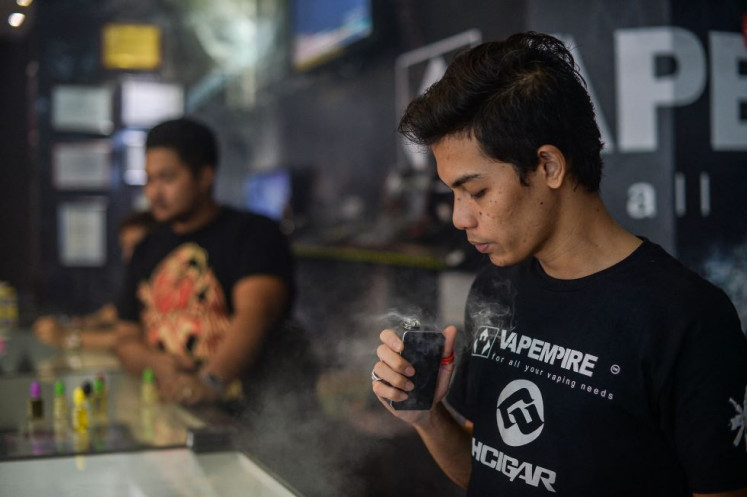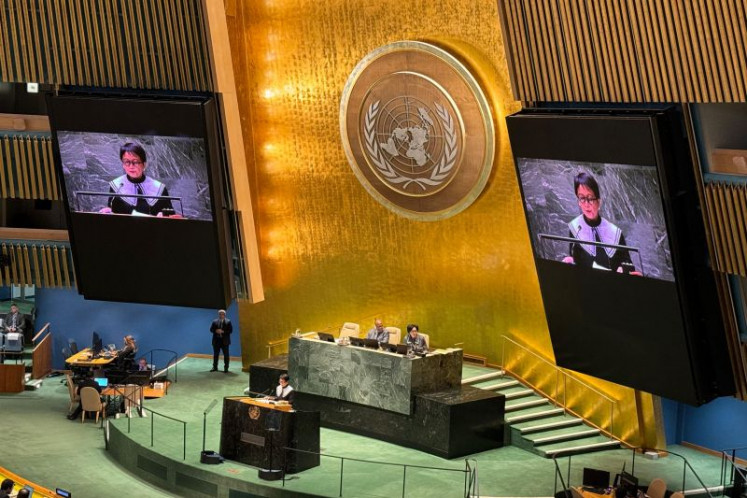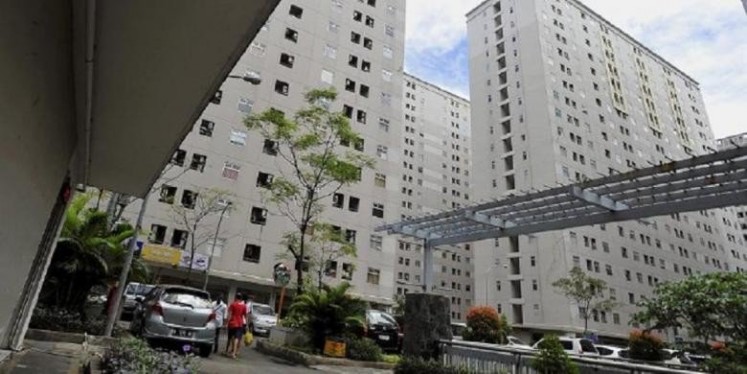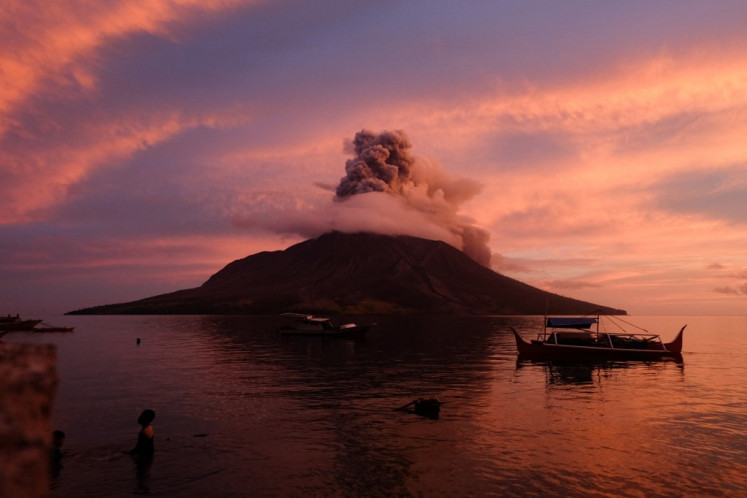A call from the border: No more bartering
Sabah government had recently issued a directive to suspend all barter activities at all ports in the Malaysian state, including Tawau Port, which is the main destination of border trade activities from Nunukan district.
Change Size
 Based on Nunukan customs office data, most goods imported from Tawau to Nunukan are staple foods that known as sembako, such as rice, sugar, fruit, vegetables, meat, chicken, milk and eggs, as well as liquefied petroleum gas (LPG). They are supplemental products that are actually also available from domestic suppliers at slightly higher prices. (Shutterstock/-)
Based on Nunukan customs office data, most goods imported from Tawau to Nunukan are staple foods that known as sembako, such as rice, sugar, fruit, vegetables, meat, chicken, milk and eggs, as well as liquefied petroleum gas (LPG). They are supplemental products that are actually also available from domestic suppliers at slightly higher prices. (Shutterstock/-)
A
few weeks after my official visit to Nunukan and Sebatik early this year, a colleague of mine who serves as head of the Nunukan customs office rang me.
He informed me that the Sabah government had recently issued a directive to suspend all barter activities at all ports in the Malaysian state, including Tawau Port, which is the main destination of border trade activities from Nunukan district.
The suspension was issued for security reasons, but most likely it will be applied permanently to accommodate safety standards, as has been ruled in the Malaysian Shipping Notice No. 18/2009.
My colleague shared his concern that such a policy would seriously hamper the economic situation in Nunukan district. Similar concerns had also been raised by the mayor of Nunukan and even the governor of North Kalimantan, who had formally reported the issue to the Foreign Ministry.
In my view, however, with the help of the central government such a situation could actually turn out to be a blessing in disguise for the Nunukan people.
First, the people of Nunukan district have long relied on various goods brought in from Malaysia and eventually it created a strong “take it for granted” mindset that the best way to fulfill their needs for such goods was only by importing them from Malaysia.
In the long run, this mindset actually diminishes any effort to strengthen the logistics supply chain from other domestic regions, such as from Makassar, Balikpapan, or even Surabaya.
In fact, based on Nunukan customs office data, most goods imported from Tawau to Nunukan are staple foods that known as sembako, such as rice, sugar, fruit, vegetables, meat, chicken, milk and eggs, as well as liquefied petroleum gas (LPG). They are supplemental products that are actually also available from domestic suppliers at slightly higher prices.
If the higher authority could provide subsidies for such domestic products sold in Nunukan, it will not only help Nunukan people to love the Indonesian products, but also strengthen the domestic logistics supply chain that eventually will motivate them to find a way to produce something that can be sold to other areas in Indonesia or even be exported to Malaysia.
It is also fair for the people of Nunukan, with the help of central government, to have a branch of the State Logistics Agency (Bulog) to provide them basic foods at affordable prices.
Second, based on my own observations, there are too many traditional unloading locations known as pelabuhan tikus that are spread around the Nunukan and Sebatik islands. In total, there are at least 31 unloading locations around Nunukan and Sebatik that have to be monitored and controlled by customs and other agencies.
Most of them are in operation without electricity and not safe for boat berthing as most boats arrive with their imported goods at night when the tide gets high.
Therefore, the suspension policy issued by the Sabah government should be a good cue for the local government to evaluate its policy that allows so many unsafe pelabuhan tikus to operate both on Sebatik and Nunukan.
Letting illegitimate pelabuhan tikus operate not only violates national port safety rules, but also puts more burdens on customs and other relevant government agencies to conduct effective monitoring and control of smuggling and illegal trade.
Therefore, it is time for the local government of Nunukan district to close thepelabuhan tikus on Nunukan and Sebatik and instead consolidate the unloading activities only at ports that meet safety standards.
Last, but not least, the policy issued by the Sabah government is a reminder for both the Malaysian and Indonesian governments to finish reviewing the Agreement on Border Trade.
The essence of this 46-year-old agreement is no longer relevant in the era of the ASEAN Economic Community.
On the Indonesian side, the agreement is not only outdated, but it also imposes a lot of operational complexities as it allows many interpretations that could potentially conflict with other regulations.
It is time to look again at point 23 of the Joint Statement between Malaysia and the Republic of Indonesia during the ninth annual consultation between Prime Minister Mohamad Najib and then president Susilo Bambang Yudhoyono in 2012.
It stated that, “Both leaders instructed officials of both countries to continue discussions on the review of the Border Trade Agreement (BTA) 1970 with a view to its early conclusion.”
Hopefully we will soon have a “down to earth” BTA that could bring not only prosperity to both countries, but also social justice for people living around the border.
***
The writer is head of the customs and excise division, eastern Kalimantan customs office. The views expressed are his own.
---------------
We are looking for information, opinions, and in-depth analysis from experts or scholars in a variety of fields. We choose articles based on facts or opinions about general news, as well as quality analysis and commentary about Indonesia or international events. Send your piece to community@jakpost.com.








